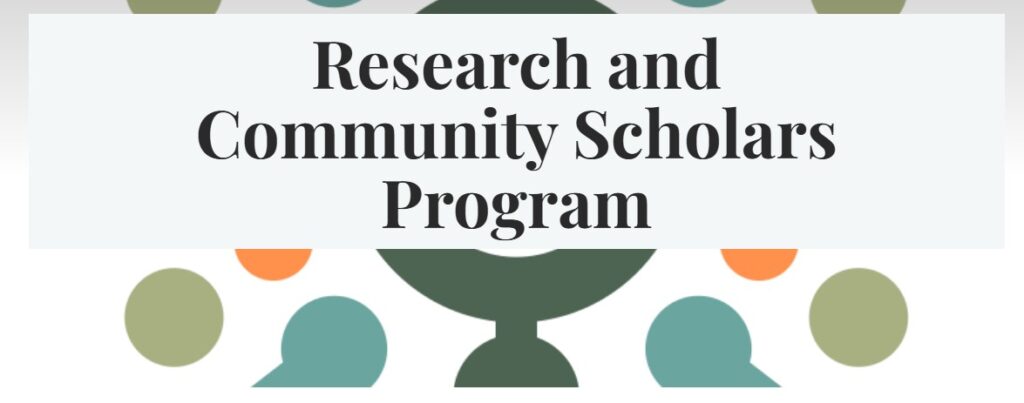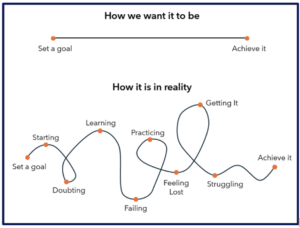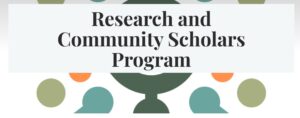A Wisconsin idea, supported by Evaluation Plus, got a rather enthusiastic reception at the recently-held American Association for Cancer Research (AACR) Conference. We presented a poster that outlined the Community and Cancer Science Network (CCSN) Research and Community Scholars Curriculum, which Evaluation Plus played a significant role in developing.
The reaction to the Scholars program was overwhelmingly positive, which reflects the intentional developmental evaluation processes and tools that have been used over the past 3 years to design, implement and adapt the program. The curriculum brings together members of the community with researchers from the Medical College of Wisconsin to learn about cancer disparities and build relationships while working together to design solutions to address cancer disparities. Clearly, it’s a unique approach to cancer disparities programming, and there was keen interest in how the program was established and how it functions.
The notion that non-scientist community members and researchers can build equitable and trusting relationships while learning about and developing important insights on cancer disparities, seemed to capture the imagination of conference attendees.
Here are some of the reactions we received:
- Conference attendees were shocked that there was such a strong commitment by scholars to a volunteer program, which meets for two hours, every other week, for nine months.
- Leaders at academic medical centers resonated with system-shifting, long-term goals, like cancer centers having their members go through the Scholars curriculum as part of membership and having alumni continue to work together on grants and publications.
- There was great interest in how we recruit such diverse participants, which vary in race/ethnicity, gender, age/level of career, and fields of expertise. Those who’d attempted similar programs struggled to recruit participants from underrepresented groups.
Unique characteristics of the program that stood out to others included:
- Community-Based Participatory Research (CBPR) is an approach that often shows up in community-academic programming and utilizes community input to inform already existing academic medicine fields. The CCSN approach of transdisciplinary collaboration, which is the foundation of the Scholars program, goes beyond CBPR by not just engaging community members in research but holding community members and academics as equal partners to co-design scientific discovery and novel approaches, and implement them together. In the CCSN approach, new knowledge and fields are created through the coming together of community and academic medicine.
- The focus on attracting basic scientists. They are traditionally left out of/not as inclined to participate in programs focused on social factors like cancer disparities and social determinants of health. Their expertise is more in biological aspects of cancer, but they are driven by solving problems, and their curious nature and expertise would be helpful to initiatives focused on cancer disparities.
- Inclusion of systems change/systems thinking. This is not an approach that is commonly included in medical research but is fundamental to how CCSN approaches all of its work.
After years of hard work by Evaluation Plus and the Scholars Leadership Team, it’s energizing to see such enthusiasm for the program from professionals across the nation who understand the need for community and academia to work together to address cancer disparities.
By sharing what we’ve learned about designing and implementing the Research and Community Scholars program, we are paving the way for others who are interested in launching similar programs at their institutions.
Responses like these validate the importance of using developmental evaluation in designing and adapting programming to reduce cancer disparities.
Kristen Gardner-Volle, MS, is a Research & Evaluation Associate
at Evaluation Plus.






